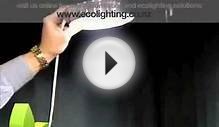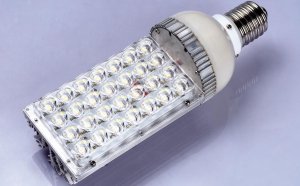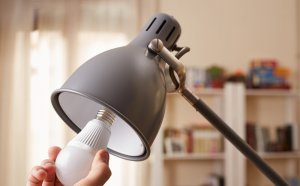
Information on LED light bulbs
… which’s not just united states bragging. Among important advantages of LED illumination is energy efficiency: LEDs produce – and consequently waste – very little heat. According to the U.S. government’s ENERGY STAR® program, incandescent light bulbs discharge 90 % of these energy as temperature. Lightweight fluorescent blubs are merely a little more effective. (They however release about 80 per cent of these energy as temperature.) LEDs (light-emitting diodes), conversely, produce light alot more effortlessly – utilizing 75 per cent less energy than incandescents. Here’s some thing even more cool: a recent LED life-cycle evaluation by OSRAM, a German illumination organization, determined the newest generationof LED lamps achieves a really high score for ecological friendliness for the whole cycle of manufacturing, use, and disposal.
Cool Facts
Here are just some of the cool traits of LEDs1:
- Energy cost savings: they normally use about 75 per cent less energy than incandescents.
- Endurance, zero-maintenance: LED lights last 35 to 50 times more than incandescents and up to 10 times longer than fluorescents.
- Directional light emission: they are able to direct light in which it is required. (Incandescent and fluorescent bulbs emit light – as well as heat – in all directions, which can be wasteful.)
- Size advantage: LEDs can be very small and low-profile.
- Durable: unlike bulbs, obtained no breakable glass or filaments.
- “Instant on”: LEDs require no warm-up time.
Their particular small size and capability to direct light, particularly, make LEDs ideal for task lighting.
LEDs and just how It Works
LEDs change from standard light sources in the manner they create light. In an incandescent lamp, a tungsten filament is heated by electric current until it glows or emits light. In a fluorescent lamp, an electrical arc excites mercury atoms, which give off ultraviolet (UV) radiation. After hitting the phosphor finish on the inside of cup tubes, the UV radiation is transformed and emitted as visible light. An LED, in comparison, is a semiconductor diode. It is comprised of a chip of semiconducting product treated generate a structure labeled as a p-n (positive-negative) junction. Click these links to Energy Star® additionally the division of Energy to learn more.
RELATED VIDEO



Share this Post
Related posts
Cheap LED Light bulbs
Remember in not-so-distant last when nearly all Light-emitting Diode light bulbs had been prohibitively priced? Well, right…
Read MoreWhat are LED light bulbs?
The bulb with lit up our homes because the 1800s is formally returning out. The ineffective incandescent, which manages to…
Read More










